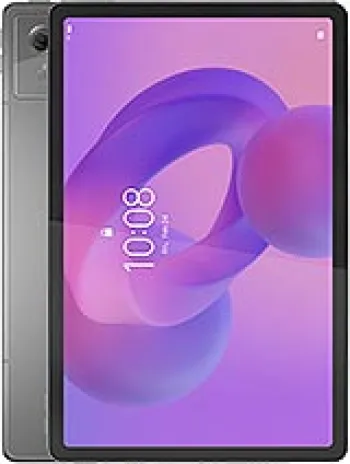
Overview of Lenovo IdeaPad S2
The Lenovo IdeaPad S2 is a versatile and initially innovative Android tablet that was announced in January 2012 and released in September of the same year. Although it has been discontinued, its blend of specifications made it a notable device during its time. The IdeaPad S2 targets users looking for portable entertainment and light productivity on the go, featuring typical hardware and software configurations tailored to casual users.
Design and Build
The device sports a solid construction, weighing in at 580 grams (1.28 lbs). The Lenovo IdeaPad S2 has dimensions that fit comfortably in hand, though exact measurements were not specified. Its black exterior adds a sleek, professional look, appealing to both personal and business users. The overall design supports portability while maintaining robustness for daily use.
Display
The IdeaPad S2 is equipped with a 10-inch LED-backlit IPS LCD screen, offering a resolution of 800 x 1280 pixels, translating to a 16:10 aspect ratio and approximately 151 ppi density. This display serves as a medium for consuming media, browsing the web, and running various applications with sufficient clarity and brightness, albeit not designed for high-definition media consumption.
Performance and Software
At the core of the IdeaPad S2 lies the Qualcomm MSM8960 Snapdragon S4 Plus chipset, featuring a dual-core 1.5 GHz Krait CPU and an Adreno 225 GPU. Accompanied by 1GB of RAM, the device is capable of handling basic multitasking and media playback. It runs on Android 4.0 Ice Cream Sandwich, which was Google's latest mobile OS at the time of the device's release. The OS provides an array of features aimed at delivering a smooth and responsive user experience, though its aging version might not support the latest applications and updates.
Storage Options
For storage, Lenovo offered two internal configurations: 32GB and 64GB. Additionally, the IdeaPad S2 supports expansion via a dedicated microSDHC card slot, allowing users to increase storage size for additional apps, media, and files. This makes the device flexible for users with varying storage needs, though limited by the typical constraints of apps runnable on Android 4.0.
Camera Specifications
The tablet features a 5MP autofocus main camera capable of video recording, suitable for casual photography. Although not designed for professional-grade photos, it serves the purpose of capturing moments in reasonable quality for its time. Furthermore, it includes a front-facing camera aimed at selfies and video calling, though specific details about the front camera were not richly provided.
Audio and Connectivity
For audio, the IdeaPad S2 offers stereo speakers and a standard 3.5mm headphone jack, supporting various audio listening preferences with satisfactory sound quality. In terms of connectivity, it includes Wi-Fi 802.11 b/g/n with hotspot capabilities, Bluetooth 2.1 with A2DP and EDR for wireless connections, and a microUSB 2.0 port for data transfer and charging. However, the absence of a radio feature may be a drawback for users who enjoy radio services.
Battery Life
The device is powered by a non-removable Li-Ion 1350mAh battery, generally offering up to 9 hours of multimedia usage. This battery life caters to casual users who need their device operational throughout a standard day of unstrained activity. Nonetheless, intensive usage can drain the battery more rapidly.
Additional Features
Among its additional features, the Lenovo IdeaPad S2 includes sensors such as an accelerometer, a gyroscope, and a compass, enhancing the overall interactivity and functionality of the device. These sensors allow for orientation-based functionalities and applications, enriching the user experience in gaming and navigation applications up to the technical limitations of its era.
Network and Communication
Concerning network capabilities, the device supports GSM and HSPA technologies. It includes 2G bands (GSM 850/900/1800/1900) and 3G bands (HSDPA 2100), alongside HSPA network speeds. These connectivity options are aimed at ensuring seamless connectivity for calls, text, and moderate internet speed reflecting its era’s standards.
Concluding Thoughts
Ultimately, the Lenovo IdeaPad S2 offers a historical exploration into tablet technologies of the early 2010s. Though considered outdated by today’s standards, it serves as a testament to the evolution of portable Android devices. It appealed to a market of multimedia enthusiasts and lighter productivity tasks, encapsulating the transition from laptops to more portable solutions. Its specification served a functional role commensurate with the needs and expectations of its time.
Key Features of Lenovo IdeaPad S2
- Lightweight at 580 g (1.28 lb), making it portable and easy to carry.
- 10.0 inches LED-backlit IPS LCD display offering clear and vibrant visuals.
- Powered by Qualcomm MSM8960 Snapdragon S4 Plus chipset with a Dual-core 1.5 GHz Krait CPU for efficient performance.
- Provides up to 9 hours of multimedia usage on a single charge.
- Offers options of 32GB or 64GB internal storage, expandable via microSDHC card slot.
- Equipped with a 5 MP main camera with autofocus for capturing quality photos.
- Comes with stereo speakers and a 3.5mm audio jack for a great audio experience.
- Features Wi-Fi 802.11 b/g/n for reliable internet connectivity.
- Includes essential sensors such as accelerometer, gyro, and compass for enhanced functionality.
Lenovo IdeaPad S2 Disadvantages
- Discontinued model, might lack software updates and support.
- Outdated Android 4.0 (Ice Cream Sandwich) operating system.
- Low-resolution display with only ~151 ppi density.
- Limited RAM of 1GB, which may affect multitasking performance.
- Basic camera setup with a single 5 MP main camera and unspecified selfie camera quality.
- No 4G network support.
- No built-in FM radio feature.
- Older Bluetooth version 2.1, which may impact connectivity with newer devices.
- Non-removable battery, limiting user replacement options.
- Heavy weight at 580 g, which might affect portability.

View Also
More Phones
All Rights Reserved +14267 Phones © Mobilawy 2025

























